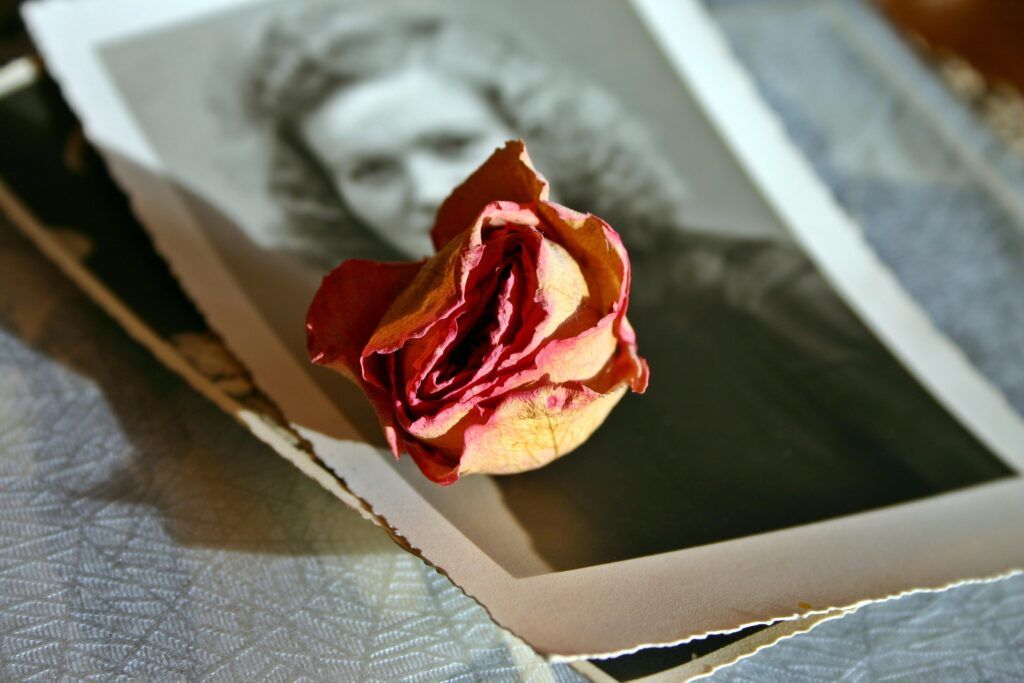How to Write Memory Books for Dementia Patients
Memory books can be wonderful gifts for Alzheimer’s patients and dementia sufferers alike. They can help individuals recall memories they haven’t remembered in years, sometimes decades. Reconnecting those wires and jogging those memories can be challenging to do, but picture books make it easier to connect those dots.
Going through a memory book is a wonderful activity for dementia patients. The process itself can help bring joy, amusement, and comfort back into the lives of dementia patients. It can be a great thing for dementia patients to do and can be a great pastime between family members and friends.
Going through photo albums is great for everyone, but what makes memory books a bit more special is the thought that goes behind creating them in addition to the extra items that may be present.
Photo albums typically just contain photographs, but memory books can include anything that would jog a person’s memory such as keepsake items, memorabilia, souvenirs, and small collectibles that they hold dear.
Caring for dementia patients is made easier as those patients start improving. Memory books can be a part of that journey and may act as the catalyst that brings loved ones to the present moment while reconnecting through their pasts.
What Is a Memory Book for Dementia and What Are the Benefits of Memory Books for Dementia ?

A memory book is a book filled with photographs, letters, notes, and other sentimental items. Memory books don’t have a cut and dry layout or format. The purpose of memory books for dementia patients is to help individuals reconnect with their pasts on an emotional level.
Memory books can help jog a person’s memory, while also giving you quality one-on-one time with your loved ones as you go through the book with them. As each page turns and you and your loved ones are presented with photographs and keepsake items, you can retell those stories to them.
Remind them of where they were, who they were with, what the purpose of the trip was for example and how much fun was had. Did anything happen that was shocking, funny, scary, or memorable in some way?
Even if it wasn’t captured in that photograph, retelling those stories can help turn the switch on a person’s memory and could give a wonderful memory back to them.
Memory books can be wonderful gifts for Alzheimers patients and dementia sufferers alike.
Picture books for adults with dementia can make connecting with those individuals easier, creating new memories in the process.
How Do You Create a Memory Book for Someone With Dementia?

You may be wondering what you should include in a memory box for dementia sufferers? Before you actually start building the memory book, you’ll need to decide what you’d like your focal point of the book to be.
Will the theme of the memory book be on a person’s entire life, or perhaps you’d like to focus on family times or the person’s marriage. Some additional memory book theme ideas you could focus on are:
- The years your loved one spent working or on active duty
- Their pets throughout the years
- Vacations they’ve been on and places they’ve traveled to
- Different homes they’ve lived in
- For creatives, the things they’ve created throughout the years like pieces of art or sculptures
- For musicians, the places they’ve performed and who they’ve performed with
- Focusing on your loved ones children and time spent with them
Now that you know what the theme of your memory book will be, creating your memory book for people who suffer from dementia is more simple than you might think.
You can create them in a variety of ways. Some of the most common are by purchasing an empty photo album or a scrapbook album. These can be found online or in-person at your local art supply store. They come in many different colors and styles and can serve a multitude of purposes.
What you choose to include inside the memory book will be up to you. But, some common items you may want to include are:
- Physical photographs
- Hand-written notes
- Small keepsake items like locks of hair
- Special coins
- Ribbons from awards won
- Rocks & flowers found while on vacations
- Pieces of jewelry
These are just a few of many memory book ideas. The memory book you create will be appreciated by your loved one and will also be a fun project. Taking a walk down memory lane may even stir up some happy memories in you as well. Everyone benefits from memory books as they help individuals to reconnect with their most cherished memories in brand new ways.
Connecticut In-Home Assistance has been providing hourly , 24-hour/live-in , homemaker & companion , and personal care services to the elderly and disabeled for over 20 years.
Proudly serving the state of Connecticut, our home health aides are here to assist you with daily tasks, errands, and to provide genuine companionship.
We Provide Exceptional In-Home Care for Dementia Patients as Well as the Elderly and Disabled in Connecticut
Call Us Today at (855) 412-2273 to Request a Free Assessment and to Learn More
We’re Always Here to Help!
The post How to Write Memory Books for Dementia Patients appeared first on .
Share
Related Posts




